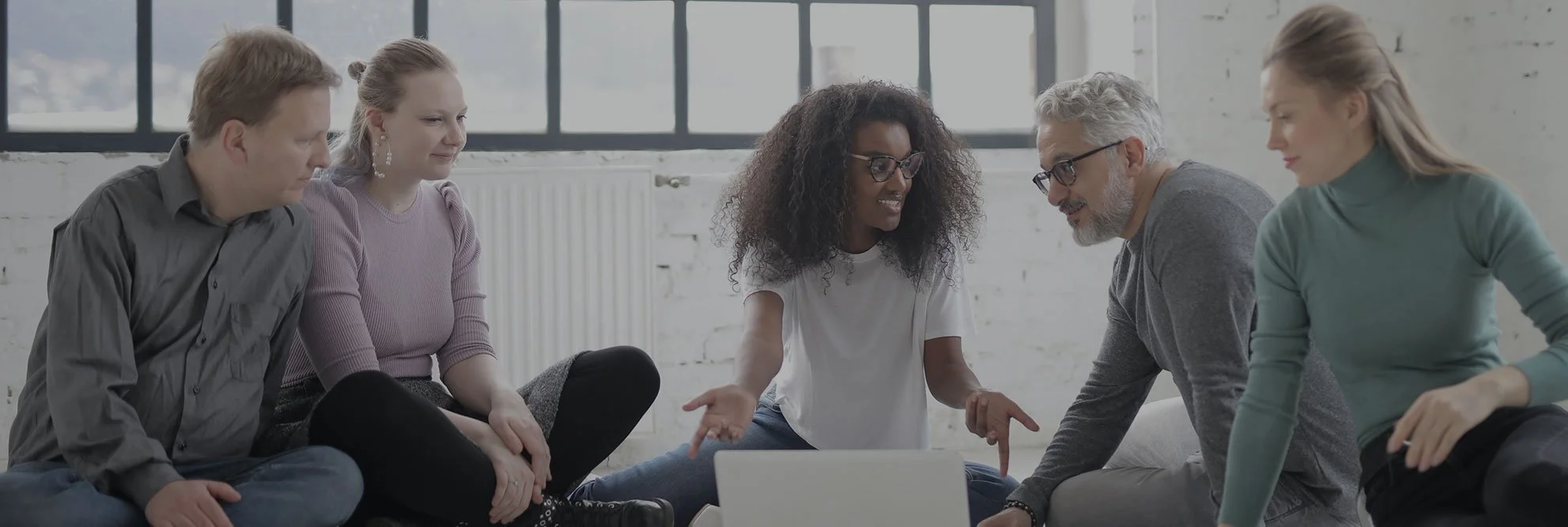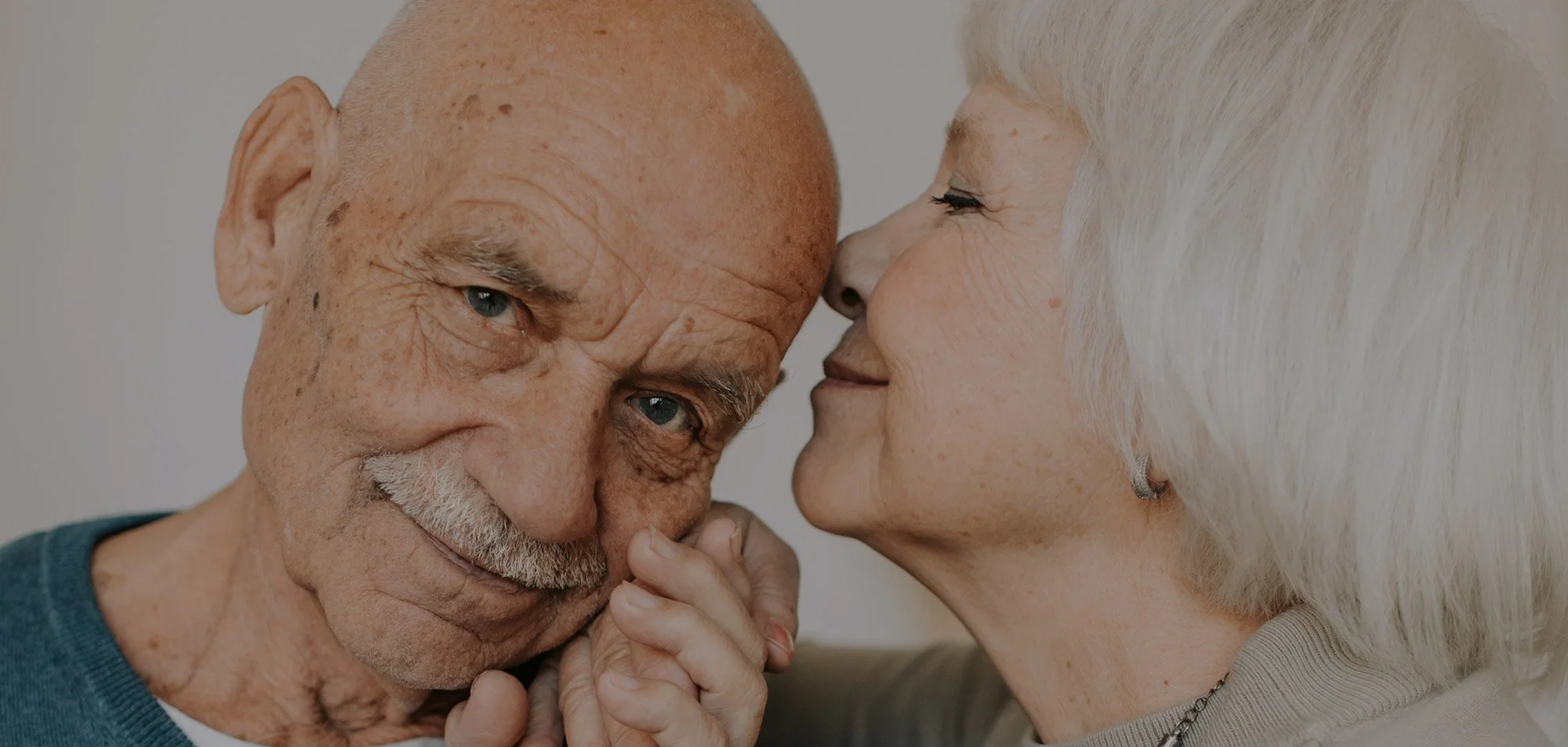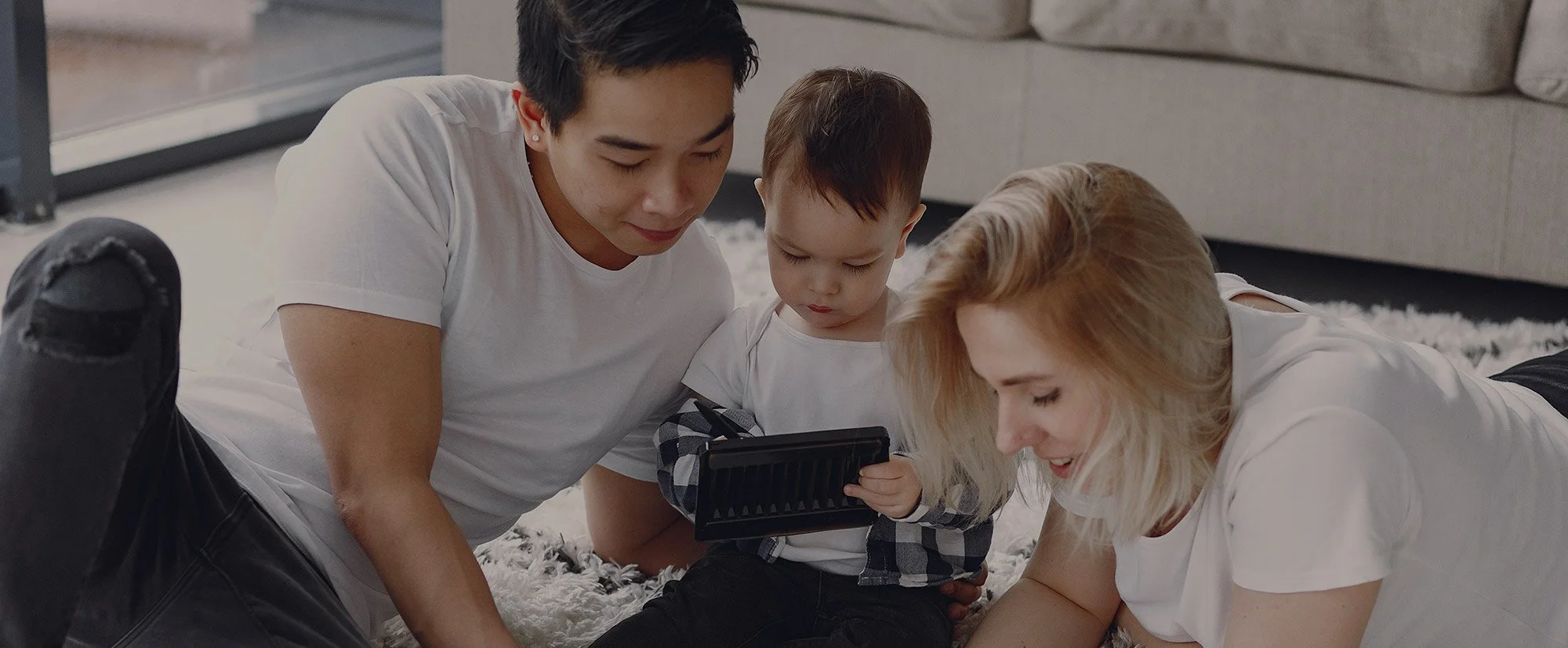
Life Guide
How do you live a good life? What is important in your daily struggle? Even though it all comes down to your personal decisions and subjective experience, we still need some objective guidance and orientation if we want to be able to put all our life situations into a meaningful context.
Phases of Life
A guidance on life can be obtained from modern psychological findings and the ancient wisdom that was accumulated over millennia and across generations. Based on these insights and because I really bothered to think this through properly, I created this ultimate guide to a good life. I hope it will provide you with the necessary realisations to make the right choices and to gain that constructive mindset that will motivate you for your future life.
I divided this guide into age phases by decades. Each age phase consists of a description, objectives for that age, and some actionable tips to put the objectives into practice. Feel free to jump to the life phase that concerns you, and don't worry if you didn't execute the objectives as per earlier phases. There's always the right time to change and to make the necessary adjustments, even in high age. It's about personal development, and not about making it all correctly, because you can't. We are limited and therefore imperfect by nature, and that's totally fine. Be lenient with yourself at the current stage you're at, and allow yourself to be making mistakes. To cut a long story short, here's the guide to living a good and meaningful life.

CHILDHOOD
Play & Fun
Your early childhood is where you develop your primal trust in life. When your parents meet your primary needs like hunger, thirst etc., you start trusting the physical environment and establish a core around which your identity as a person will be developing in future life. This phase is very important and there wasn’t anything you could do about it. In your childhood we are very vulnerable and have to rely on our parents and the environment that we’ll be safe and allowed to develop as children through fun and play.
Early childhood is very instinctual and primal. However, we already start showing first character traits at this stage and although we are very malleable by the environment, social norms and society, we also come with certain predispositions and instincts into the world which will interact with the outside environment, furnishing our personal identity and capabilities.
In any case, whatever external influences had an impact on you in your childhood, you didn’t have much power to change or avoid it. Your capacity for self-determination and personal development emerge slowly, but steadily when you start growing up, leaving the early childhood behind step by step and moving towards your teenage years. Until then, it’s useless to think about any objectives or tips for action for your childhood years, as your intellect and emotionality aren’t that developed yet, so you can’t conceptualise the need for personal growth as a child. All you need to do here is to be allowed to play, interact with people, have your selfish impulses held in check by the adults, and learn the basic skills when you go to school.
In a nutshell: hopefully you had a happy, playful, lighthearted and innocent childhood. If not, you will have to work on yourself in the following years, trying to make up for the lost qualities in a constructive and empowering way as an adult. Don’t worry, it’s always possible to improve your life, no matter what came before.

TEENAGE YEARS
Transformation
Being a teenager is difficult. From the age of 12-14 your body and mind start transforming very rapidly. It’s a transition from childhood into adulthood. You start gaining new social skills and freedoms, partly through the development of your brain which extends your intellectual and emotional capacities, and partly through the new experiences that you will be going through. Body and mind constitute a unity, and whatever happens to your body at this stage will have an impact on the way you think and feel. It also works the other way around, but in this early phase of development the physicality plays a much stronger role on your mental and emotional state.
You start getting taller, your body grows, your genitals become extensively active sexually, you start growing hair where you didn’t expect it, your voice changes (especially with boys), girls start menstruating once a month, boys ejaculate unwillingly at nights, your face skin gets pimples, the list of changes goes on. The whole biochemistry of a teenager gets into a disarray for a couple of years, because you mature into an adult human being in the course of just a short period of time. And every change brings chaos into the system.
Your body is controlled by various biochemical signals that are called hormones. It’s these hormonal changes within your body that often make your mental state moody, unstable, changeable, rebellious, hysterical, and conflicted in relation to your daily experiences. Because your body is in a state of change, your mind is also in a state of change which makes you basically fluid, flexible and malleable in everything you do.
Objective: Self-Determination
As a teenager your objective should be to establish your identity as a person. The whole phase develops your personality, which means that you experiment, make mistakes and go through experiences to discover your likes and dislikes, your preferences, passions, interests, strengths and weaknesses.
Growing up basically means gaining ever more types of freedom for your personal life. As a child you had to listen to your parents and had to ask for permission for many things. As a teenager your body and mind become ever more self-determined. Therefore, you can do many more things out of your own volition. This extended capability to do more allows you to claim more personal freedoms. You still need to obey certain rules set in your household or by the local community. However, in terms of personal preferences you start making your own choices.
It’s important to know that you won’t be a fully developed and realised personality by the end of your growth as a teenager. At the beginning of your twenties you reach physical maturity. However, your mental, psychological development will continue. In fact, the closure of your physical development as a teenager is just the beginning of your further mental and emotional evolution. It will take you many years in later life until you realise what actually matters, what drives you and what your real preferences are in life. Being a teenager is just the springboard for your evolution as an adult. That’s why be gentle with yourself as a teenager and accept that you don’t have to understand it all at this stage. Knowledge and insights will come to you eventually in later life. For now, discover and explore your primal interests, so that you can establish your professional path as early as possible.
Tip: Gain Experience, Become Social
As a teenager try to gain as much experience as possible. Obviously, you shouldn’t go through every experience, only because it’s possible. Only because there’s drugs out there, doesn’t mean that you should try drugs. Only because people might have sex in weird places doesn’t mean that you should have lots of sex in weird places. It’s important to go through a variety of experiences that are within the healthy limits of decency and common sense. You’ll be having those experiences automatically by going to school, meeting your peers, going to bars, clubs and traveling around. By making these experiences you try different things so that you can figure out what really interests and drives you. Your start learning the basics of life not just in theory, but also in practice.

TWENTIES
Real-Life Experience
At the beginning of your twenties you’re a mature, physical human being. However, your personal, psychological development is just beginning. Your twenties is an experimental phase in which you can try out all the things that are allowed for adults. As with teenagers, the same rule applies: only because you can try something, doesn’t mean that you have to do it. And only because something is allowed, doesn’t mean that it’s good for you. Use your common sense, decency and reason in whatever experiences you want to make. Everything is very individual at the end, so there’s no single way that you should tread. However, a few principles should be able to guide you well through the jungle of adult life.
Whatever you learned about jobs and corporate life as a teenager, now in your twenties you can finally experience it in practice. You should be able to match your learned skills and theories with the practical needs in the job market, regardless of whether you’re employed or self-employed. Only by having a job and contributing to society you finally learn the daily irritations, inconveniences, boredom and frustrations, but also the excitement, passion and happiness.
If there’s room for mistakes in life, your twenties are now the perfect phase to be making them. You will still have enough time in life to correct your errors, and time will help you heal the wounds that you might experience.
Objective: Establish Your Identity
Your goal at this stage should be to find your path in life. It might take you a long time, it might take you a short time, but whatever you do, allow yourself to try new things and make mistakes. As long as you’re young and don’t have that many responsibilities, you’ll be able to have those experiences from which you will eventually learn many valuable lessons about life and human relations.
Ultimately, your main goal should be to have a meaningful and happy family life and professional fulfilment. It might take you many years until you get there. The sooner you get there, the better. But don’t stress yourself in your twenties. You should lay the focus on experience, learning and experimenting. By gaining real life experiences through practice you deepen and extend your already established identity as a person. You discover new interests or you have your existing preferences confirmed and reinforced.
Tip: Allow for Mistakes
Go through experiences, allow for mistakes, don’t be judgmental with yourself and other people, and learn the realities of taking responsibility for yourself and other people. Only through your twenties do you discover that the naive and idealistic concepts that you had about people and life were very limited and that there’s lots of practical obstacles, complexities and contradictions in human nature and social interactions that cannot be easily explained. With growing experience your eyes are opened, so go into the world and collect your share of experiences inside and outside your country so that you can learn more about the world and various perspectives.

THIRTIES
Pinnacle of Power
In your thirties you arrive at the pinnacle of your capabilities as a human being. You’re still young enough and vital, but you also have enough life experience and wisdom, so that you aren’t that naive and ignorant about yourself and life in general.
Your thirties should be a phase of building up a way of life. In the same way as your twenties were about gaining experience, your thirties should be about putting your experience into practice to build something durable and stable. And in the case of most people this means founding a family.
At this stage in life you recognise what matters most in life and realise that career and job alone cannot give you that meaningful satisfaction. Only through sharing relations and exchanging with people you gain that deep connection that we all need as human beings which ultimately means having your own family to share happiness and pain together.
Objective: Grow & Build Up
In your thirties a new adventure starts. You decide to “settle down”, which can mean that you decide to have a family, or to build up a new business, re-orientate yourself in your professional life, get a new and more fulfilling job, or perhaps all of it. This is a stage for reinventions and growth of something bigger than just your personal self.
At this stage you should be done developing your self-identity and should focus on acting more selflessly and contributing to society. Bring your private and professional life in order. Start a family, decide your new professional path, or decide to go on a completely different path if your job hasn’t given you the fulfilment you looked for. Your thirties is the perfect time to do that before you start taking on new duties and responsibilities in your family.
Tip: Embrace Responsibility
Re-evaluate if you’re happy with your present condition and identity the aspects that you need to improve. Realise that now you’re a fully adult person, both physically and mentally and that now is the time to plan your future years. You’re not going to grow young, only old, and the decisions you take right now will have an impact on the following years. Do not avoid responsibilities. In fact, embrace them. Realise that in responsibility you will find meaningfulness and fulfilment in life.
Use your knowledge, skills and gained wisdom to reinvent yourself if it needs to be done. Take responsibility for your actions, stop blaming society or other people for your situation, get rid of grievances from childhood if you had any, and work on yourself so that you can usher in into your late thirties and forties as a person who is at peace with oneself and who is willing to dedicate oneself to helping others through family, friends and society in general. In this way you life will take on new dimensions and things get remarkably exciting all of the sudden.

FORTIES
Maintenance & Continuation
You arrived at the height of life. You share your experience and knowledge with people around you. It’s a phase of maintenance and continuation that you had started in your thirties. It might be the phase with the least radical changes in your life, as it’s about growing and building-up what you had already initiated before with regard to your family and career.
However, if you still have unresolved issues or problems at this stage, this is also the time to deal with them to bring your inner life in order. There’s never too late for that, and your forties are a good age to use the experience you gained to improve yourself. Continue being the support for the people you love. Train yourself in compassion and selflessness.
Objective: Impart Your experience
Continue raising your children, who might even be teenagers by this time. With your accumulated experience you impart real-life knowledge to your children who will be the next generation to build up society. At this point whatever your started career-wise should be slowly giving you back the results and success you were striving after. If it doesn’t, continue learning and improving while taking care about the people around you.

FIFTIES
Virtuous Life
Anything at this stage is a continuation of the previous years. Your fifties are based on your forties. However, around this time your preferences might have changed. Observe yourself, see what still drives you and what not, act accordingly, and train yourself in virtues, compassion and selflessness. Your Fifties is another opportunity for reinvention which should have to do with contributing to society and being a good person in general.
Shift in Consciousness
Start focusing on the intellectual matters and less on physical matters of the body. Your sex life should start loosing on importance, although you might still enjoy it a lot in your Fifties. Ultimately, it’s about a shift in consciousness away from bodily pleasures and materialistic matters and more towards intellectual pursuits, gaining knowledge, and taking it easy in life. There’s not much else to say here. By this time you should have figured out your life. And if you didn't, then again: keep on working on yourself.

SIXTIES+
Moral & Spiritual matters
From your sixties on it is a time to start withdrawing slowly from the mundane aspects of life. You should focus on more spiritual, transcendental and intellectual matters, which also means embracing your own mortality. We won’t live forever, and everyone will die one day. This is the stage to become aware of the passing time and take the necessary precautions to make peace with the transient nature of life. Your sixties is about acceptance and letting go of any issues that are still not solved. Reconcile with the people you quarrelled about, get in touch with the people you always wanted to say 'thank you' to. Make peace with life and yourself, so that you can dedicate the rest of your life to moral and intellectual or even spiritual goals with good conscience, compassion and pure intentions.
Slow Withdrawal & Guidance
Withdraw from sex life and bodily pleasures, and try to focus more on purely intellectual matters. The body is in decline, and there’s no point in sticking to things that are going to disintegrate anyway one day. Become aware and accept your own mortality. When you do that, you can focus on selfless activities by e.g. imparting knowledge and wisdom to younger generations, such as your children, grand-children etc. You can even become a patron, offer counsel or guidance in your area of expertise and in this way continue contributing to society without having to play the main role any more. In this way life becomes lighter, calmer, more peaceful, but also intellectually and spiritually far more interesting and stimulating all the way into high age.

SUMMARY
That was my thoughts about the various stages of life. Nothing that is written by a single person can claim to cover all of reality, so obviously there’s always room for improvement in such an essay. Also, you might have other ideas and concepts about how to live a fulfilling life and there might be cases where a different path is more desirable for a certain type of people. That’s why I’m not making claims that my description is about how it should be for literally everyone.
However, I hope I could provide some useful orientation, guidance and inspiration that could apply to the majority of people. Take these thoughts, insights and concepts, make them your own, complement them with your ideas. Whatever contradicts your instinct, forget my words and follow your inner calling and intuition, as you should do with everything in life.
Have a fulfilling, peaceful and beautiful life - the actual reason why you’re here.
Thank you for reading.